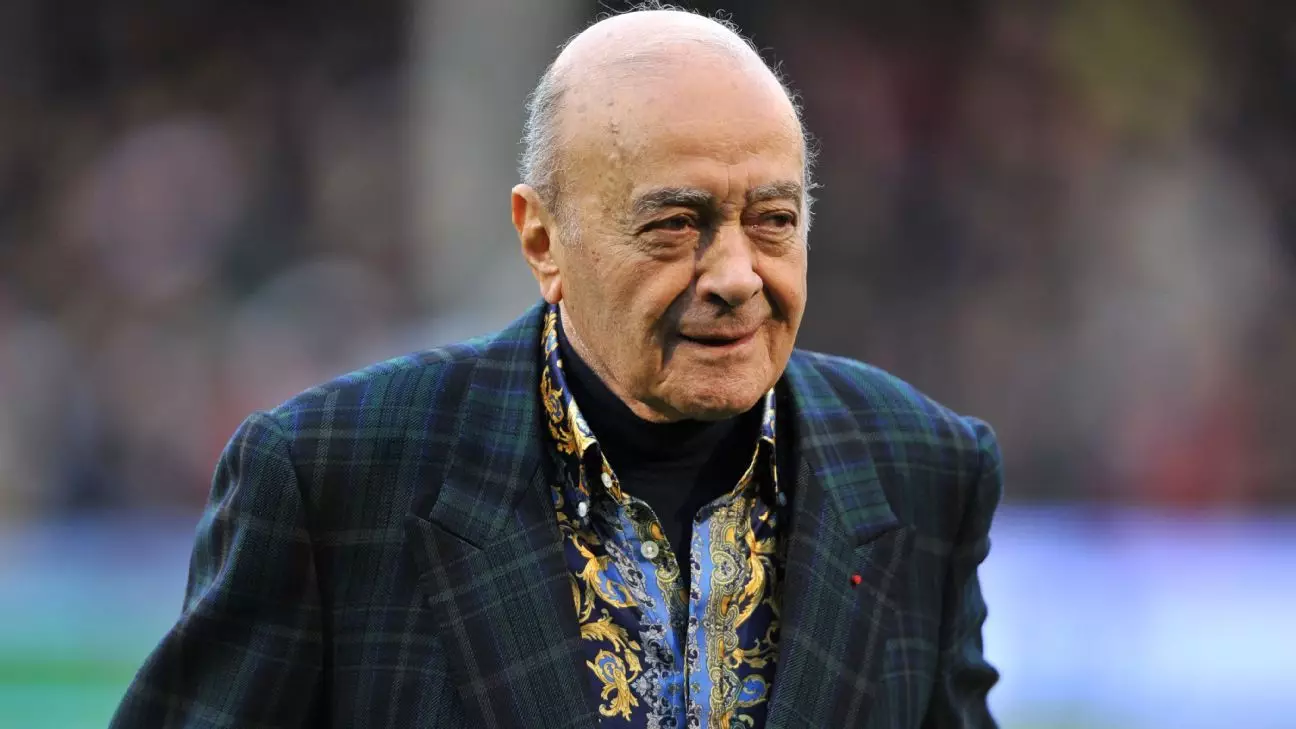Former Fulham Women’s Team captain Ronnie Gibbons has alleged that she was sexually assaulted on two separate occasions by Mohamed Al Fayed, the late businessman who owned the club from 1997 to 2013. In an alarming revelation published by The Athletic, Gibbons recounts how the incidents occurred while she was just 20 years old and working towards her football career. Al Fayed, known for his leadership and controversial business tactics, is accused of using his authority and position to manipulate and take advantage of Gibbons in a manner that evokes deep concern about the culture of power within sports organizations.
Recognizing the Gravity of the Situation
Fulham Football Club has responded to Gibbons’ claims with empathy, expressing profound concern over her experiences. Their statement underscores the importance of addressing abuse across all platforms, and highlights the fact that numerous other women have come forward to accuse Al Fayed of similar misconduct. According to London police, nearly 40 women have raised allegations of rape or sexual assault against him, exacerbating a budding narrative that intricately weaves power, silence, and intimidation. This context raises pertinent questions about the accountability of powerful figures in professional settings and the long-lasting impacts their actions have on survivors.
The allegations against Al Fayed tap into a broader conversation about the pervasive problem of sexual assault and misconduct, particularly in the realm of sports. For years, athletes—especially women—have found themselves in vulnerable positions, facing systemic barriers when attempting to report abuse. The cultural silence that often shrouds these cases can extend to an atmosphere where victims feel pressured to remain silent, fearing they will not be believed or taken seriously. Gibbons’ decision to bravely share her story within this fraught context speaks volumes about her resilience and determination to reclaim her narrative.
Gibbons articulated a powerful sentiment when she stated, “Speaking my truth and finally telling my story will hopefully help me heal and be rid of the shame, embarrassment and pain I have carried for years.” This statement reflects not only her personal journey but also highlights the essential need for an environment in which survivors can voice their experiences without fear of repercussion. There exists an urgency for sports organizations to cultivate a culture of safety that prioritizes the well-being of its members, actively working to dismantle structures that allow abuse to flourish in the shadows.
As the allegations continue to unfold, it is essential for both fans and governing bodies within the sports community to prioritize the establishment of a supportive framework for victims. This entails not just listening to their experiences but also implementing proactive strategies to prevent future misconduct and guarantee that proper channels of reporting and accountability are firmly in place. Ronnie Gibbons’ testimony serves as a crucial reminder of the work still needed to be done to protect the dignity and rights of all individuals in the sporting arena. It is hoped that her bravery will inspire others to speak out and ultimately lead to a paradigm shift in how we protect the vulnerable from those who exploit their power.

